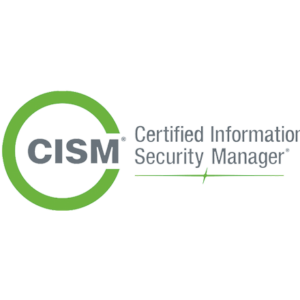Description
Course Description:
This comprehensive Database Security Certified Course is designed to equip learners with in-depth knowledge and practical skills to protect, manage, and secure modern database systems. The program covers critical topics such as database vulnerabilities, encryption techniques, authentication and access controls, SQL injection prevention, auditing, and compliance standards. Through a blend of theoretical concepts and hands-on exercises, participants will learn how to implement robust security measures, detect potential threats, and ensure data integrity across various database platforms. Ideal for IT professionals, database administrators, and security enthusiasts, this course prepares you to safeguard sensitive data, strengthen organizational security frameworks, and advance your career in the rapidly growing field of database security.
Key Features of Course Divine:
- Collaboration with E‑Cell IIT Tirupati
- 1:1 Online Mentorship Platform
- Credit-Based Certification
- Live Classes Led by Industry Experts
- Live, Real-World Projects
- 100% Placement Support
- Potential Interview Training
- Resume-Building Activities
Career Opportunities After Database Security Certified Course:
- Database Security Administrator
- Database Security Analyst
- Database Administrator (DBA)
- Information Security Analyst
- Cybersecurity Specialist
- SQL Security Expert
- Data Privacy Officer
- IT Security Consultant
- Cloud Database Security Engineer
- Network Security Analyst
- Ethical Hacker / Penetration Tester
- Compliance Auditor
- Risk Management Specialist
- Database Forensics Investigator
- Data Protection Officer (DPO)
- Application Security Engineer
- Big Data Security Analyst
- Security Operations Center (SOC) Analyst
- DevSecOps Engineer
- IT Infrastructure Security Manager
Essential Skills you will Develop Database Security Certified Course:
- Database vulnerability assessment and mitigation
- Implementing robust access controls and authentication
- SQL injection detection and prevention
- Data encryption and decryption techniques
- Backup and recovery strategies for secure databases
- Database auditing and monitoring for threats
- Understanding and applying database compliance standards (e.g., GDPR, HIPAA)
- Designing secure database architectures
- Incident response and handling database breaches
- Risk assessment and management for database systems
- Database security in cloud environments
- Implementing role-based and attribute-based access controls
- Securing stored procedures and triggers
- Logging and monitoring suspicious database activities
- Secure database configuration and patch management
- Integration of database security with network security
- Threat modeling specific to database systems
- Use of security tools for database monitoring and auditing
- Data masking and anonymization techniques
- Best practices for maintaining database integrity
Tools Covered:
- SQL Server Management Studio (SSMS)
- Oracle Enterprise Manager
- MySQL Workbench
- MongoDB Compass
- IBM Guardium
- DbDefence
- Toad for Oracle
- Nessus
- Wireshark
- SQLmap
- Splunk
- Redgate SQL Toolbelt
- AppDetectivePRO
- Imperva SecureSphere
- Metasploit
- ApexSQL Security
- DbProtect
- Qualys
- Veracrypt
- Nagios
Syllabus:
Module 1: Introduction to Database Security Importance of database security Common threats and vulnerabilities Overview of security frameworks and standards.
Module 2: Database Architecture and Security Principles Database types and structures Security principles for database design Role-based and attribute-based access control.
Module 3: Authentication and Authorization User authentication techniques Password policies and multi-factor authentication Implementing roles, privileges, and permissions.
Module 4: Database Encryption Techniques Data-at-rest and data-in-transit encryption Symmetric and asymmetric encryption Transparent Data Encryption (TDE).
Module 5: SQL Injection and Threat Prevention Understanding SQL injection attacks Prevention techniques and best practices Secure coding guidelines for database applications.
Module 6: Database Auditing and Monitoring Database activity monitoring tools Logging and tracking user actions Detecting suspicious activity.
Module 7: Backup, Recovery, and Disaster Management Secure backup strategies Recovery planning and disaster mitigation Ensuring data integrity and availability.
Module 8: Database Security in Cloud and Hybrid Environments Cloud database security challenges Best practices for securing cloud-based databases Hybrid environment considerations.
Module 9: Compliance, Governance, and Risk Management Regulatory standards (GDPR, HIPAA, PCI-DSS) Risk assessment and management Security policies and governance frameworks.
Module 10: Real-Time Security Implementation and Case Studies Hands-on projects with real-world scenarios Incident response and breach management Practical implementation of security strategies.
Industry Projects:
- Securing a company’s SQL Server database against unauthorized access
- Implementing encryption for sensitive customer data in MySQL
- Setting up role-based access controls in an Oracle database
- Performing a vulnerability assessment of a cloud-hosted database
- Detecting and preventing SQL injection attacks in a web application
- Auditing user activities in a corporate database using IBM Guardium
- Designing a secure backup and recovery system for a financial database
- Implementing Transparent Data Encryption (TDE) in SQL Server
- Monitoring and logging suspicious activities in MongoDB
- Conducting compliance checks for GDPR on a healthcare database
- Configuring multi-factor authentication for database access
- Penetration testing of a database using SQLmap and Metasploit
- Data masking and anonymization for a customer database
- Securing database connections in a hybrid cloud environment
- Creating a disaster recovery plan for an enterprise database system
- Developing a database security policy for a mid-sized organization
- Integration of database security with overall network security using Wireshark
- Implementing auditing and alert mechanisms in Redgate SQL Toolbelt
- Analyzing database logs using ELK Stack for threat detection
- Real-time threat detection and response using Splunk
Who is this program for?
- Aspiring Database Administrators (DBAs)
- IT professionals seeking specialization in database security
- Cybersecurity enthusiasts and beginners
- Software developers looking to secure database applications
- Cloud engineers handling cloud-based databases
- Network security professionals aiming to expand skillset
- Data analysts who want to ensure data integrity and security
- IT managers responsible for organizational data security
- Ethical hackers and penetration testers
- Students pursuing degrees in Computer Science or IT
- Professionals preparing for security certifications
- Compliance officers managing data privacy regulations
- Risk management specialists in IT departments
- System administrators managing databases
- Professionals from healthcare, finance, or e-commerce sectors
- DevOps and DevSecOps engineers
- Government IT staff managing sensitive databases
- Consultants advising on IT security strategies
- Professionals seeking career growth in cybersecurity
- Enterprises aiming to train their IT team in database protection
How To Apply:
Mobile: 9100348679
Email: coursedivine@gmail.com









Reviews
There are no reviews yet.